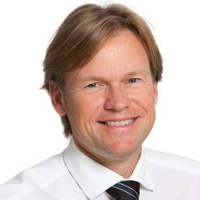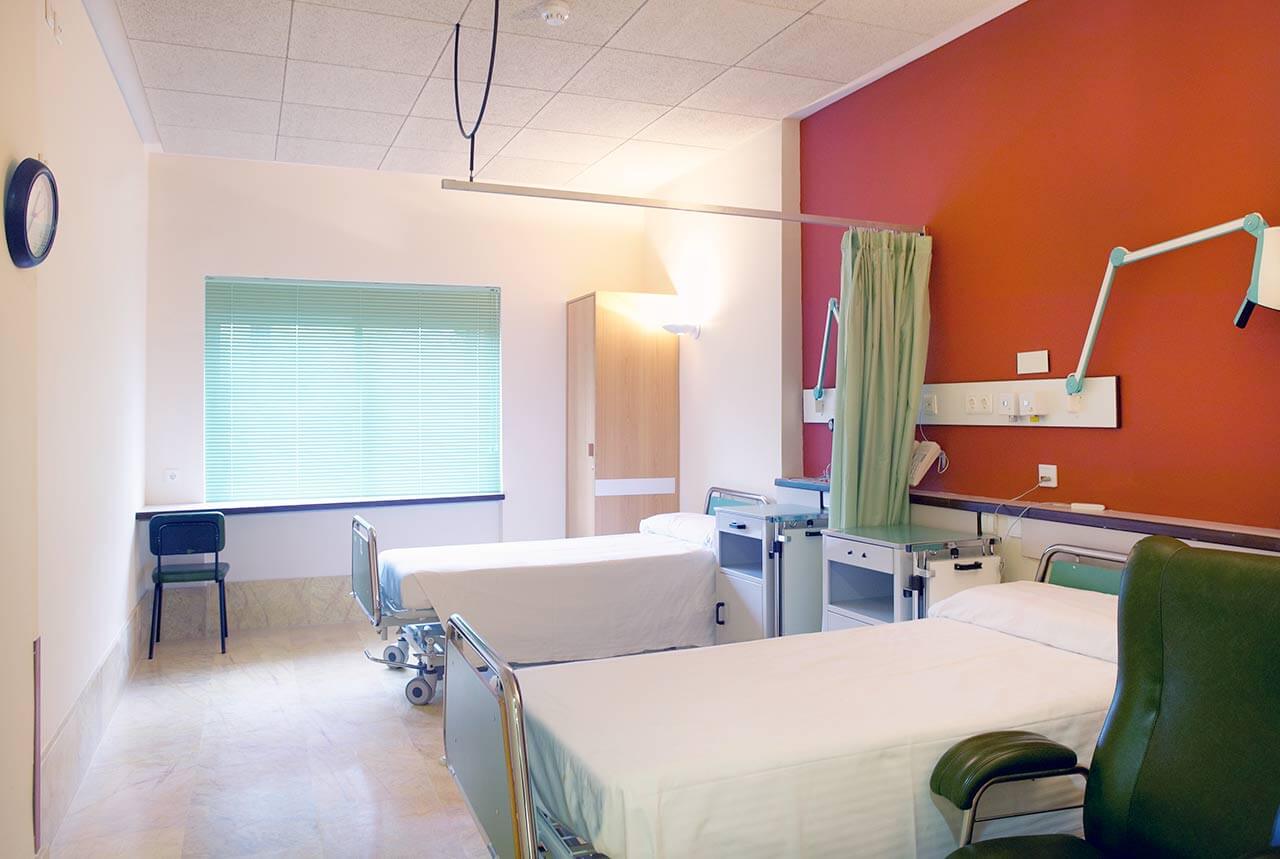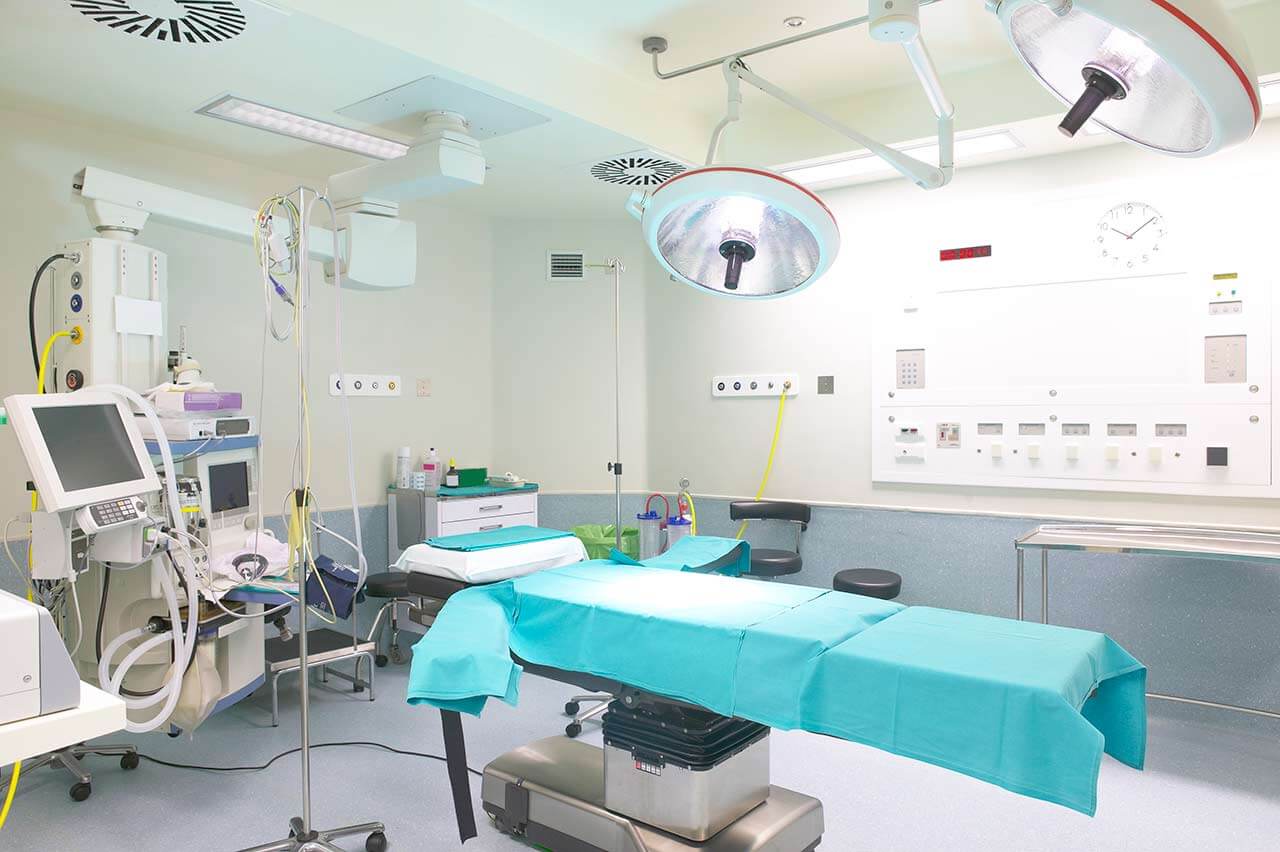
The program includes:
- Initial presentation in the clinic
- clinical history taking
- review of medical records
- physical examination
- laboratory tests:
- complete blood count
- biochemical blood test
- inflammation markers (CRP, ESR)
- blood coagulation analysis (aPTT, PT, INR)
- otorhinolaryngological examination
- neurological examination
- dix-hallpike positional test
- audiometry
- electrocardiogram (ECG)
- brain and cervical spine CT/ MRI
(if indicated clinically, additional cost is 650/1200€) - nursing services
- services of all leading experts
- elaboration of individual treatment plan
Required documents
- Medical records
- Doppler ultrasound/duplex scanning of the brain vessels (if available)
- Brain MRI/CT scan (if available)
Service
You may also book:
 BookingHealth Price from:
BookingHealth Price from:
About the department
According to the Focus magazine, the Department of Neurology and Epileptology at the Hospital Cologne-Merheim ranks among the top German medical centers specializing in multiple sclerosis treatment!
The department offers the full range of modern diagnostics and treatments for diseases of the brain and spinal cord, peripheral nerve endings, and muscles. Particular attention in clinical practice is paid to the care of patients with stroke, epilepsy, multiple sclerosis, Parkinson's disease, brain tumors, and chronic headaches. There are 80 beds in the department for a hospital stay. The department's specialists annually admit more than 3,000 inpatients with neurological diseases of varying severity, and many patients receive medical care in outpatient clinics every year. Neurologists cooperate closely with neurosurgeons, neuroradiologists, and neurological rehabilitation specialists, thanks to which the department provides comprehensive treatment that meets the standards of European medicine. During the therapeutic process, doctors use effective drug therapy regimens with pills, injection therapy, infusions, botulinum toxin therapy, physiotherapeutic procedures, therapeutic gymnastics, massage, and other methods. The doctors always take into account the individual needs and wishes of the patients, ensuring comfort and a friendly atmosphere in the department. The department is headed by Prof. Dr. med. Volker Limmroth. The doctor has repeatedly been ranked among the top German specialists in the field of neurology.
The department has state-of-the-art medical equipment for high-precision diagnostics of neurological diseases. The department's doctors conduct modern neurophysiological studies, including electroencephalography, electroneurography, and electromyography, recording of evoked potentials, ultrasound scans, including Doppler ultrasonography, duplex ultrasonography, and transcranial duplex sonography, to assess cerebral blood circulation. Patients with suspected dizziness undergo video-oculography and posturography. In collaboration with the Department of Neuroradiology, the experts carry out computed tomography and magnetic resonance imaging of the brain and spinal cord. Diagnostic options are supplemented with cerebrospinal fluid analysis and neuropsychological diagnostics.
Multiple sclerosis treatment is a special area of specialization in the department. Patients with this pathology are admitted to the specialized outpatient clinic. Multiple sclerosis is a chronic neuroimmunological disease, the main manifestations of which are movement disorders, impaired coordination, sensitivity, and vision. The disease most often affects people between the ages of 15 and 45, predominantly women. In most cases, the department's doctors deal with a form of multiple sclerosis in which periods of exacerbation alternate with periods of remission. During the diagnostic stage, brain MRI, cerebrospinal fluid analysis, and registration of evoked potentials are performed. Should the diagnosis be confirmed, the department's doctors will proceed with the development of an optimal treatment regimen for the patient. Since multiple sclerosis is an incurable disease, the doctors' efforts are aimed at controlling the inflammatory process in the brain during the exacerbation period and maximizing the remission period. Treatment involves the intake of drug complexes and infusion therapy, which are combined with therapeutic exercises, physiotherapeutic procedures, and occupational therapy.
The department has achieved excellent results in the treatment of brain tumors. Brain cancer treatment is a complex clinical task, so the department's neurologists prefer a multidisciplinary approach. As a rule, neurosurgeons, neuroradiologists, and neurological rehabilitation specialists are involved in the therapeutic process. A treatment regimen is developed on an individual basis, taking into account specific clinical data and the stage of cancer. The department's specialists most often treat gliomas, meningiomas, medulloblastomas, neurinomas, and brain metastases. The treatment of brain tumors is usually based on tumor resection surgery combined with chemotherapy, radiation therapy, and targeted therapy. In some clinical cases, it is impossible to perform surgery for tumor resection due to the fact that the tumor is located in a hard-to-reach area, so the main treatment methods become irradiation and chemotherapy.
The medical facility regularly admits patients with Parkinson's disease, which is a fairly common neurological disorder. Parkinson's disease is a slowly progressive pathology characterized by impaired movement regulation and reduced muscle tone, leading to tremors, general movement rigidity, and postural disorders. During the diagnostics, the patient is prescribed electromyography, electroencephalography, laboratory tests, including cerebrospinal fluid analysis, and differential diagnosis to accurately determine the exact form of Parkinson's disease. The department's neurologists recommend patients undergo drug therapy, therapeutic exercises, and physiotherapy to alleviate symptoms and slow down the progression of the disease. The aim of drug therapy is to compensate for dopamine deficiency in the brain caused by Parkinson's disease, which, in turn, improves motor function. If conservative treatment fails to yield positive results, neurosurgeons are involved in the therapeutic process. The specialists offer patients a highly effective deep brain stimulation technique. A medical board, with the participation of neurologists and neurosurgeons, determines if it is advisable to perform this procedure for the patient. Deep brain stimulation has been successfully performed at the medical facility since 2013, so the specialists have impressive experience in this field.
The department houses an advanced Stroke Unit and an Intensive Care Unit. The Intensive Care Unit treats about 400 patients every year, while the Stroke Unit admits more than 800 patients. In most cases, intensive care is required for patients with cerebrovascular diseases, hemorrhages in the brain and its internal structures, as well as bleeding from the soft brain meninges. Patients with meningitis, certain forms of epilepsy, Parkinson's disease, neuromuscular junction disease, etc. are also treated in the Intensive Care Unit. The main treatment method for stroke is thrombolysis. The essence of the procedure is drug therapy aimed at the rapid dissolution of blood clots in the blood vessel. This type of treatment is effective in the first hours after the onset of stroke symptoms.
The department's key clinical focuses include:
- Diagnostics and treatment of multiple sclerosis
- Diagnostics and treatment of brain tumors
- Gliomas
- Meningiomas
- Medulloblastomas
- Neuromas
- Pituitary adenomas
- Brain metastases
- Diagnostics and treatment of Parkinson's disease
- Diagnostics and treatment of stroke (at a specialized Stroke Unit)
- Diagnostics and treatment of chronic headaches
- All forms of migraine
- Tension headaches
- Cluster headaches
- Medication overuse headaches
- Trigeminal neuralgia
- Diagnostics and treatment of epilepsy
- Diagnostics and treatment of other diseases of the nervous system
The department's range of medical services includes:
- Diagnostics
- Neurophysiological studies
- Electroencephalography
- Electroneurography
- Electromyography
- Registration of evoked potentials
- Ultrasound scans
- Doppler ultrasonography
- Duplex ultrasonography
- Transcranial duplex sonography
- Imaging tests
- Computed tomography
- Magnetic resonance tomography
- Video-oculography and posturography for dizziness diagnostics
- Cerebrospinal fluid analysis
- Neurophysiological studies
- Treatment
- Drug therapy with pills
- Infusion therapy
- Injection therapy
- Botulinum toxin therapy
- Thrombolysis
- Therapeutic exercises
- Physiotherapy
- Ergotherapy
- Speech therapy
- Intensive care
- Other diagnostic and treatment methods
Curriculum vitae
Higher Education and Professional Career
- 1984 - 1990 Medical studies at the Faculty of Medicine of the Georg August University of Goettingen and the Federal University of Rio de Janeiro, Brazil; medical training at Harvard Medical School, Harvard University, and the University of Duisburg-Essen.
- 1990 - 1993 Intern and Assistant Physician, Department of Neurology, University Hospital Essen.
- 1991 Thesis defense at the Georg August University of Goettingen.
- 1993 - 1996 Neurology Center, Massachusetts General Hospital, Harvard Medical School, Boston.
- 1996 - 1997 Work in the Department of General Psychiatry at the University Hospital Essen.
- 1998 Board certification in Neurology, Medical Association of North Rhine, and theoretical basis of the specialty in Cerebrospinal Fluid Analysis, Neurological Laboratory Medicine.
- 1999 Senior Physician, Department of Neurology, University Hospital Essen.
- 2002 Managing Senior Physician, Department of Neurology.
- 2002 Habilitation, University of Essen.
- Since 2006 Head Physician of the Department of Neurology and Epileptology at the Hospital Cologne-Merheim.
- 2008 Deputy Medical Director of the Hospital Cologne-Merheim.
- 2008 Extraordinary Professorship, University of Cologne.
- Since 2009 Scientific Director of NeuroUpdate.
- 2010 - 2013 Medical Director of the Hospital Cologne-Merheim.
- Since 2018 Scientific Director and Moderator of the NeuroLive interdisciplinary conference.
Clinical Focuses
- Neurology.
- Special neurological intensive care.
- Palliative care.
Scientific Focuses
- Immunology and multiple sclerosis treatment.
- Stroke treatment.
- Pathophysiology, genetics, and treatment of pain syndromes.
Photo of the doctor: (c) Kliniken der Stadt Köln gGmbH
About hospital
According to the reputable Focus magazine, the Hospital Cologne-Merheim ranks among the top German medical centers!
The health facility is an academic hospital of Witten/Herdecke University, which gives patients access to the very latest developments in European medicine. The Hospital Cologne-Merheim positions itself as a maximum care medical center, which is why it offers a wide range of high-quality medical services. The hospital has 752 beds in 13 specialized departments. More than 28,000 inpatients are treated here every year. Outpatient care is also provided for many medical specialties. The hospital also collaborates closely with the University Hospital Cologne, carrying out fruitful work at the Transplant Center.
The most successful areas of clinical practice in the medical center are neurosurgery, pulmonology, transplantology, surgery (in particular, minimally invasive), cardiology, traumatology, joint replacement surgery, and plastic surgery. The Departments of Ophthalmology, Anesthesiology, Radiology, Neuroradiology, and Palliative Care are also distinguished by top-class medical service. In addition, the Departments of Neurology and Neurosurgery provide effective early rehabilitation programs for patients with stroke, traumatic brain injuries, brain tumors, and other neurological diseases. Comprehensive treatment of such a level is available only at highly specialized and best medical facilities in Germany.
The hospital has several ultramodern intensive care units, where patients in critical condition are treated.
It is worth noting that the hospital was the first in the region to be certified in accordance with KTQ® (Cooperation for Transparency and Quality in Health Care). The certification process is repeated every three years, and each time the hospital passes it with excellent results.
The basis for high-quality medical services lies in state-of-the-art equipment, the application of effective and reliable therapeutic methods, and the vast clinical experience and professionalism of doctors and nursing staff. The main value for each employee at the hospital is the patient's health. Doctors devote enough time to personal communication with patients in order to establish a trusting relationship and explain the details of upcoming treatment.
Photo: (с) depositphotos
Accommodation in hospital
Patients rooms
The patients of the Hospital Cologne-Merheim live in single and double rooms. All patient rooms are cozy and designed in light colors. Each patient room has an ensuite bathroom with a shower and a toilet. The furnishings of a standard patient room include an automatically adjustable bed, a bedside table with a pull-out tray, a wardrobe for personal belongings, a table and chairs for receiving visitors, a TV, and a telephone. Wi-Fi is also available in the patient rooms.
If desired, patients may stay in an enhanced-comfort room, which additionally provides a safe, a mini-fridge, and upholstered furniture.
Meals and Menus
The patients are offered three tasty and healthy meals a day: breakfast, lunch, and dinner. Breakfast and dinner are served as buffets, and for lunch, there is a set of three menus to choose from.
If, for some reason, you do not eat all the foods, you will be offered an individual menu. Please inform the medical staff about your dietary preferences prior to treatment.
Further details
Standard rooms include:
Religion
There is a chapel on the territory of the hospital, where Catholic and Evangelical worship is regularly held on Sundays and religious holidays. The chapel is also open daily for visits and solitude for prayers.
The services of representatives of other religions are available upon request.
Accompanying person
Your accompanying person may stay with you in your patient room or at the hotel of your choice during the inpatient program.
Hotel
You may stay at the hotel of your choice during the outpatient program. Our managers will support you for selecting the best option.




